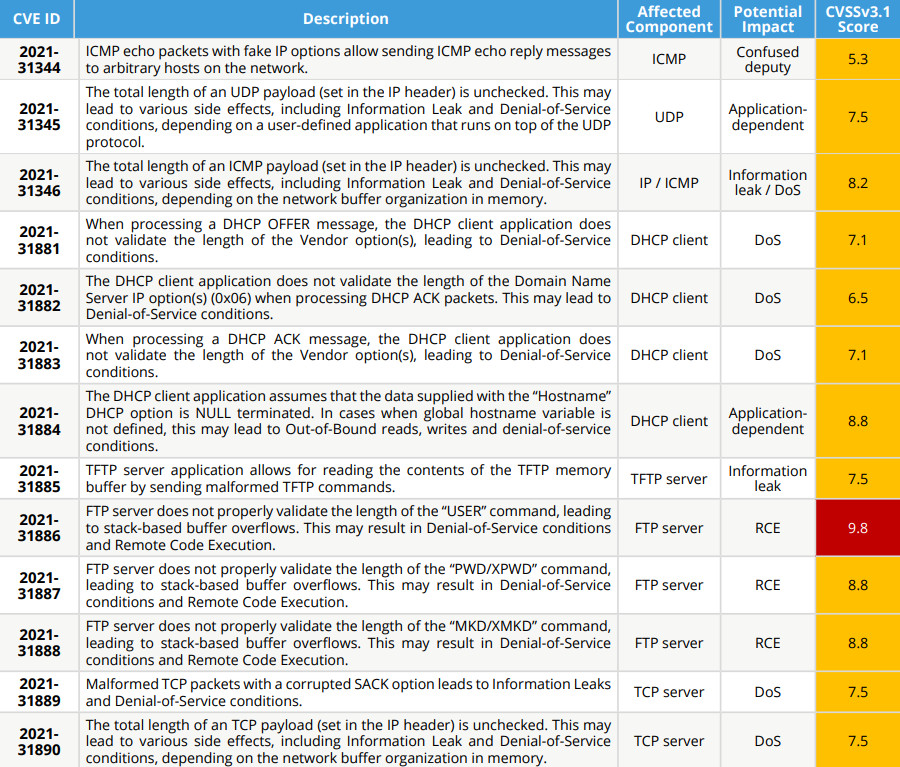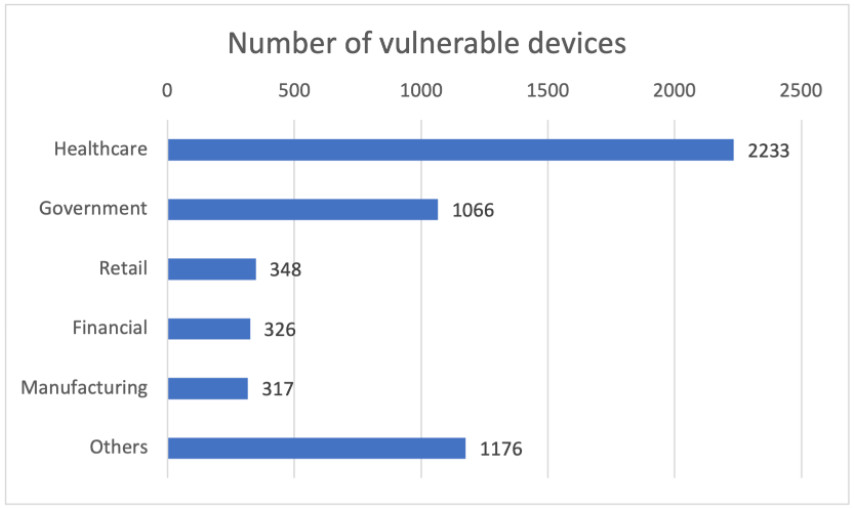KEEP IN TOUCH
Subscribe to our mailing list to get free tips on Data Protection and Cybersecurity updates weekly!







Researchers today published details about a suite of 13 vulnerabilities in the Nucleus real-time operating system (RTOS) from Siemens that powers devices used in the medical, industrial, automotive, and aerospace sectors.
Dubbed NUCLEUS:13, the set of flaws affect the Nucleus TCP/IP stack and could be leveraged to obtain remote code execution on vulnerable devices, create a denial-of-service condition, or obtain info that could lead to damaging consequences.
The NUCLEUS:13 vulnerabilities were discovered by researchers at cybersecurity company Forescout and Medigate, a firm that focuses on the security of devices for healthcare providers.
The research is the last part of a larger initiative from Forescout called Project Memoria, which brought together industry peers, universities and research institutes to analyze the security of multiple TCP/IP stacks.
Project Memoria lasted for 18 months and lead to the discovery of 78 vulnerabilities in 14 TCP/IP stacks, presented in studies published as AMNESIA:33, NUMBER:JACK, NAME:WRECK, and INFRA:HALT.
Also Read: New Licensing Requirements For Cyber-Security Service Providers in 2022
Another research that aligns with Project Memoria’s goal is Ripple20 from security research group JSOF, which uncovered 19 flaws in the proprietary TCP/IP stack from Treck.
A dozen of the NUCLEUS:13 flaws received medium and high severity ratings, the one standing out being CVE-2021-31886, a critical bug affecting the FTP server component that could allow attackers to take control of the vulnerable device.
In a report published today, Forescout notes that the issue is due to the FTP server’s improper validation of the length of the “USER” command. This leads to stack-based buffer overflows that could result in DoS and remote code execution (RCE) conditions.
Also Read: A Closer Look: The Personal Information Protection Law in China

As seen in the image above, two other high-severity vulnerabilities (CVE-2021-31887 and CVE-2021-31888) have a potential RCE impact, and both affect the FTP server component.
Forescout note in a blog post announcing a suite of vulnerabilities that the Nucleus RTOS “is deployed in more than 3 billion devices” in healthcare and critical systems.
Based on the company’s visibility, over 5,000 devices are running a vulnerable version of the Nucleus RTOS, most of them in the healthcare sector.

To show how serious NUCLEUS:13 is, Forescout described two hacking scenarios. One targeted a hospital’s building automation to crash a controller that automatically switched on a fan and lights when someone entered a patient’s room.
In the second scenario, the target was a presence sensor part of the railway infrastructure, which detects when a train arrives at the station and controls how long it stops.
By crashing the controller with any of the DoS bugs in the NUCLEUS:13 suite, an attacker could cause the train to run past the station and potentially collide with another train or objects on the track.
Forescout researcher Stanislav Dashevskyi demonstrated the NUCLEUS:13 attacks in the video below
Siemens has released updates that fix the NUCLEUS:13 vulnerabilities in Nucleus ReadyStart versions 3 (update to v2017.02.4 or later) and 4 (update to v4.1.1 or later version).
An advisory from the U.S. Cybersecurity and Infrastructure Security Agency (CISA) today provides the following general mitigation action:
For organizations where patching is not possible at the moment due to the critical nature of the affected devices, Forescout provides the following mitigation strategy: